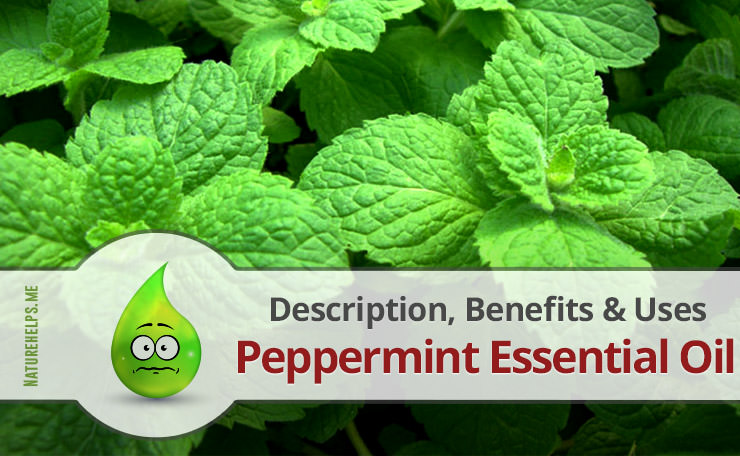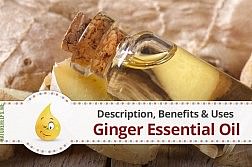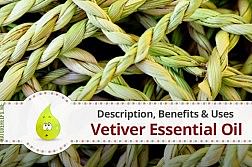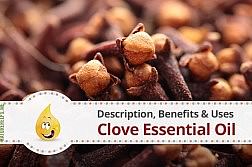Pleasantly suitable for an abundance of oral and topical uses and antimicrobial properties, peppermint may be the most versatile essential oil in the world. Literally, there are few health problems that it cannot solve.
Peppermint (Mentha piperita) is a perennial herb reaching a height of 80-100 cm. Peppermint in the wild does not occur. It is cultivated in Ukraine, Moldova, Belarus and parts of Russia. Peppermint essential oil is extracted from the leaves of the plant by steam distillation of steam. The main active ingredient – menthol. Ready peppermint essential oil has a delicate flavor and a refreshing light yellow or light green color.
Effects & Actions of Peppermint
Effects of peppermint oil on the internal organs and systems
- the nervous system stimulation
- tonic
- antispasmodic
- antiseptic
- expectorant
- diuretic
- anthelmintic
- hindering the secretion of milk
Effects of peppermint oil on psycho-emotional sphere
This oil relieves emotional stress, calms the nerves.
Helps to overcome insomnia associated with stressful situations.
Stimulates mental activity, clears the mind and helps to focus on this task.
Effects of peppermint oil on bio-energy field
Aroma “Yin”. Peppermint oil can make clean energy breathing, stimulates the renewal of content and energy fields. Gives confidence in the future and helps more open to people and the world. On bioenergetic level it protects against disease and injury. It keeps people away from the evil eye.
Usage of Peppermint Oil
Usage of peppermint oil in cosmetology
Nail Care: due to its anti-fungal properties peppermint is indicated for the prevention and treatment of fungal nail diseases.
Hair Care: Peppermint oil is very useful for hair care. The cooling effect helps relieve itchy scalp. In addition to it, helps get rid of dandruff and lice. Peppermint oil has antiseptic, regenerative and stimulating effect, thus able to stimulate hair growth for people suffering from alopecia. Use of this oil regularly makes hair shiny and healthy.
Skin Care: Peppermint contains menthol, which works well on oily skin. It reduces sebum production and also narrows skin pores. Freshens skin and reduces signs of fatigue. Due to its antibacterial properties, peppermint oil removes acne and improves the skin protective barrier.
Domestic use of essential oil: Peppermint oil repels insects and reduces inflammation after their bites. It is useful as the repellents against mice, rats, cockroaches, ants.
The usage of peppermint in cooking: It is used in preparing candy, ice cream, cakes and other confectionaries. Just peppermint oil added to salad dressings and marinades. Peppermint essential oil is used for flavoring tea, vodka, wine and other alcoholic beverages.
How to Use Peppermint Oil
Indications in usage of peppermint
Peppermint essential oil has the ability to treat upset stomach, trouble breathing, headache, nausea, fever, stomach cramps and intestines.
For the digestive system. Peppermint oil improves digestion, reduces flatulence, stimulates the appetite, eliminates nausea and heartburn. Helps to relax the smooth muscles of the gastrointestinal tract without the use of drugs. For this purpose, oil can be dissolved (2-3 drops) in a glass of water and drink after a meal.
Dentistry. Peppermint oil, due to its antiseptic properties, is very useful in dentistry. Peppermint essential oil eliminates bad breath, helps protect teeth and gums from dangerous microbes. Has anti-inflammatory properties.
Treat Nausea and Headache with Peppermint. The essential oil of peppermint is a good way to eliminate nausea and headaches. To quickly relieve the headache simply apply a compress with essential oils of peppermint on forehead.
To prepare a compress take a clean cotton cloth or a piece of gauze and soak it in a solution of cool water and essential oil (200 ml water 8-10 drops of essential oil), wring out and apply on the forehead. The procedure lasts 10-15 minutes.
Inhaling peppermint oil can fight nausea and motion sickness.
How to Relieve Stress with Peppermint. It is able to relieve stress, depression and mental exhaustion. This oil also removes the feeling of anxiety and worry.
Urinary tract infections. Peppermint essential oil is rich in antibacterial properties, so can be used to treat urinary tract infections (UTI).
Respiratory diseases. Menthol, which in great quantity in peppermint oil, helps to clear the airways. Effective expectorant and therefore provides instant, but temporary, relief from numerous respiratory diseases, including nasal congestion, sinusitis, asthma, bronchitis, colds and coughs.
Anesthesia. Peppermint essential oil is used topically in the form of compresses and massage to relieve muscle and headaches. Anesthetic properties of oil due to its cooling and anti-inflammatory abilities.
The immune system. Peppermint essential oil is able to enhance the immune system. Powerful antiviral, antibacterial and antifungal agent. The composition of peppermint oil include camphor, menthol and carvacrol, which are resistant to certain dangerous bacterial strains, like salmonella and staphylococcus.
Blood Circulation. The stimulatory effect of peppermint oil increases blood circulation. Studies have shown that as soon as a pair of peppermint essential oil endings reach the olfactory nerves, instantly increases the heart rate and blood circulation. The stimulating effect of increasing blood circulation helps to enhance metabolism and the supply of oxygen to the organs of the body and the brain.
Contraindications in Usage of Peppermint Oil
- Not recommended for pregnant and lactating women.
- With excessive use of essential oil of it can cause headaches, heartburn, and allergic reactions.
- If you have any chronic disease, before use of peppermint oil, please consult a physician.
- Peppermint oil should not be used in conjunction with homeopathic remedies.
- Prolonged use of peppermint oil before bedtime can have a stimulating effect and lead to insomnia.
- Peppermint should not be used if you have gall stones, gastroesophageal reflux or stomach ulcers.
- It is a well-known fact that peppermint oil can interact with some medications. Patients who have received an organ transplant usually take the medication cyclosporine to prevent rejection of the organ. Peppermint oil interferes with the breakdown of cyclosporine which allows it to remain in the bloodstream for longer periods of time.
- Peppermint oil can also lower blood glucose levels which can interfere with the effectiveness of diabetic medications. It also may lower blood pressure, taking it with blood pressure medications can result in blood pressure dropping too much or too quickly.
Blends well with: eucalyptus, rosemary, lemon, marjoram, clary sage, lavender, cedar, cypress, pine and all citrus.




